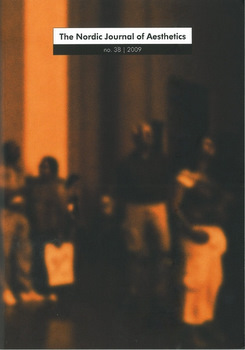Truth-Claiming in Fiction. Towards a Poetics of Literary Assertion
DOI:
https://doi.org/10.7146/nja.v20i38.2811Abstract
In the contemporary analytic philosophy of literature and especially literary theory, the paradigmatic way of understanding the beliefs and attitudes expressed in works of literary narrative fiction is to attribute them to an implied author, an entity which the literary critic Wayne C. Booth introduced in his influential study The Rhetoric of Fiction. The aim of this paper is to suggest that although the implied author sheds light on certain type of literary narratives, it is insufficient in a so-called conversational interpretation, which emphasizes the truth-claims conveyed by a fiction. In my paper, I shall show that, first, from an ontological point of view, truth-claims or actual assertions in fiction, if any, have to be attributed to the actual author and, second, that the question of truth-claiming in and by fiction is an epistemological matter concerning the actual intentions of the author.
Downloads
How to Cite
Issue
Section
License
Authors who publish with this journal agree to the following terms:
- Authors retain copyright and grant the journal right of first publication with the work simultaneously licensed under a Creative Commons Attribution License that allows others to share the work with an acknowledgement of the work's authorship and initial publication in this journal.
- Authors are able to enter into separate, additional contractual arrangements for the non-exclusive distribution of the journal's published version of the work (e.g., post it to an institutional repository or publish it in a book), with an acknowledgement of its initial publication in this journal.
- Authors are permitted and encouraged to post their work online (e.g., in institutional repositories or on their website) prior to and during the submission process, as it can lead to productive exchanges, as well as earlier and greater citation of published work (See The Effect of Open Access).




